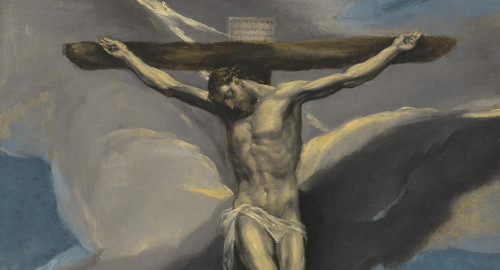
I celebrated Good Friday for the first time in the spring of 2007. I went with a few friends over to the Salvation Army where they were showing The Passion of the Christ, the ultra-gory Mel Gibson movie that depicts the last 24 hours or so of Jesus’ earthly ministry. It was a brutal film, delighting a bit too much in blood, I thought.
Despite the shortcomings of the film, I was deeply moved by the experience of remembering Christ’s death on the cross. Since then, Good Friday has become an important holiday for me. It’s a time to put my life in perspective and ask some hard questions: How do I demonstrate the kind of commitment and endurance that Jesus showed? Is my lifestyle different enough from the unjust status quo that I can even imagine being persecuted for it? Am I able to drink the cup that Jesus did?
Most days, I find my answers to these questions unsatisfying. Far too often, I allowed myself to get lost in the weeds – fretting about what others think about me, about money, or my own personal achievements. So much of my anxiety comes from focusing on my own desires – pursuing pleasure and avoiding pain. Jesus didn’t live his life that way; the crucifixion leaves no doubt.
What Jesus experienced on the cross was terrible. Crucifixion was one of the most brutal ways that the Roman Empire dominated its subjects, making it very clear who was in charge. We get some sense of this brutality from the Bible. The gospels describe how the soldiers tortured Jesus, mocked him, and humiliated him in front of the crowds. They nailed him to a cross, to await death by suffocation. The sheer physical horror of crucifixion is almost beyond my comprehension.
Jesus’ suffering went far beyond the physical. The psychological and spiritual distress he experienced were equally severe. During his trial before the Sanhedrin, Jesus stood completely alone. One of his closest confidants had sold him out, and all the rest of his friends ran away when faced with a physical threat. His most loyal follower, Peter, denied him three times before sunrise. Jesus experienced abandonment by his community at precisely the moment he most needed them. And after all of the beatings and torture, he was left to hang naked – completely alone and exposed.
At the height of his agony, Jesus didn’t even have the felt presence of God to cling to. Crying out, “My God, my God, why have you forsaken me?”, Jesus’ desolation was total. Even his Father seemed nowhere to be found.
This terrible day two thousand years ago puts my life in perspective. Am I experiencing darkness, loss, despair? Jesus is no stranger to the depths. He stands at the bottom of the well, looking up at me with compassion. He knows the deepest reaches of suffering. He reminds me that resurrection is real, and that we only get their through the way of the cross.
Far too often, we Christians make the mistake of viewing Jesus’ death on the cross as a one-time gift from God to humanity. We like to imagine that Jesus suffered so that we don’t have to. The reality could not be farther from the truth. In Jesus’ death and resurrection, we find an invitation to join him on the cross, whatever that cross might look like in our own lives. We are invited to sit at his side as he comes into a kingdom established by love and self-sacrifice.
How are you experiencing the cross in your life right now? What does it mean for our suffering to be redemptive? Rather than allowing hatred and death to conquer us, what does it look like for love to have the victory?
I’m scared. But I want to find out.
Me, too. I walk with the cross often (though not constantly) but have never quite gotten to the top of the hill and the nails.
Great metaphor. Thanks.